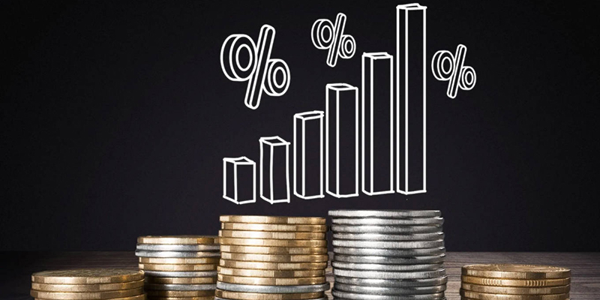The Impact of Interest Rate Changes on Your Finances
What effects do changes in interest rates have on your financial situation? We will discuss something that directly concerns all of us—interest rates. These numbers can shake up your wallet.
Imagine your mortgage, car loan, or credit card—all these are pegged on interest rates. Your financial world can turn a loop when these rates go up or down.

Many must fully grasp how much of a difference these changes will make. Today, you are flying high; tomorrow, you are wondering why your bill is higher or your savings are lower.
This article will discuss the effect of interest rates on personal finances. You will learn how they influence your money and what action to take. If you are considering managing your finances, keep reading to learn how.
Let's get started!
How Interest Rates Affect Loans and Mortgages
If interest rates increase, the cost of borrowing money will also increase. The monthly instalment could increase, and you may pay more in the long run.
Let's start with your mortgage. An increase in the rate could mean paying more each month. Not only mortgages but also car loans and personal loans suffer.
Lower rates mean the difference in the monthly amount or the number of months one would pay for the loan.
Stay alert and beware of those rates. Small savings can go a long way in your pocketbook.
● Savings Accounts and Investments
Now, discuss the money you have worked so hard for. When interest rates rise, you may be amazed that your savings account begins to work harder for you. Generally, the higher rates indicate better returns on the money you have set aside for an emergency fund.
So, it does not end with savings accounts only. CDs and money market accounts can also hold higher returns when rates increase. The idea resembles a reward for simply putting your money in a piggy bank.
If the rates reduce, your balance may compound faster than expected. At that point, consider other possibilities. The money could be better invested in stocks or bonds.
Here's the deal: interest rates can cause a lot of disturbance in the entire investment industry. Everything swings to the interest rate from bonds to stocks to real estate. So be prepared to look out for changes and make changes to your plans.
Remember, it's your money. Please make the most of it, regardless of the rates heading.
● Credit Card Rates and Debt Management
It's time to discuss what is commonly known as plastic money. Interest rates can change, and your credit cards are no exception. When rates are up, which balance do you have? It just got pricier.
The interest rates on most credit cards are usually variable. This means that when the going rate for interest increases, the interest rate on your card also increases. That debt you've been paying off gradually is growing much faster.
Well, what can one do? First, attempt to pay off the balance as often as possible, preferably once a month. If that is not possible, search for balance transfer cards with lower rates. They can buy you a few days or weeks of peace.
If rates are low, you must take out a personal loan to pay off your debt. You may also need a personal loan to pay off credit cards or combine multiple loans. Often, such loans come with lower interest than the cards.
As you have seen, the best thing is to maintain your credit card balance as low as possible, regardless of the rates.
● Planning for Future Interest Rate Changes
Interest rates will always fluctuate, so it pays to be prepared. First, Start an emergency fund. It is your hedge when rates change unexpectedly. Ideally, you should have 3-6 months of your living expenses saved in it.

For loans, it is always best to go for fixed rates. They give you structure in a highly volatile market. Consider locking a good rate when you can.
Watch out for the economic news. Being a professional is optional, but knowing which direction the wind blows in regards to choices does not hurt.
Diversify your investments. Only invest in a single one once it can meet all your needs. Combine it with equities, fixed income, and probably some property.
Remember that flexibility is the keyword. It is also essential to be prepared to change your approach as the rates fluctuate. Your future self will have something to thank you for.
Take Charge of Your Financial Future Now!
Now, it is your turn to act and follow the thinking that will lead you to success. Have a look at your budget. What would happen if the interest rates changed to your loans, savings, or investments?
Don't go it alone. An independent financial advisor can help avoid such situations. They are in a position to give you recommendations based on your circumstances.
Remember, your financial life is in your hands. So why wait? Start planning now. Your future self shall be glad you took the time to prepare for fluctuating interest rates.
Frequently Asked Questions
Q. What causes interest rates to change?
Ans: Interest rates are flexible due to changes in inflation rates, government policies, and market forces. The central bank regulates monetary growth and stability through rates.
Q. How can I protect my savings from low interest rates?
Ans: Diversify your savings. Think of making high-yield savings accounts, certificates of deposit, or money market funds. In the long term of investments, it is possible to obtain better returns in stocks even if they may fluctuate in the short term.
Q. What should I do if interest rates rise and I have a variable-rate loan?
Ans: Don't panic. It is recommended that the budget be revisited to develop ways of dealing with the higher payments. One should pay off more of the principal amount to minimize the interest charges.
Q. Is it better to invest in fixed-rate or variable-rate products?
Ans: This has to do with investment goals and tolerance for risks. They have stable rates and returns; you know how much you'll receive regularly. Credit-sensitive products can give better yields if rates go up.

